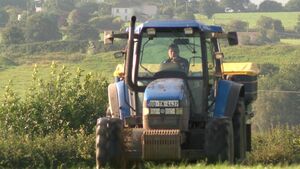74% of Irish farmers more likely to suffer heart attack or stroke — Report

Study reveals that 74% of Irish farmers are three times more likely to suffer a heart attack or stroke than those in the population with fewer risk factors.
Published in the autumn edition of Teagasc’s TResearch journal, the findings of the first phase of the Farmers Have Hearts — Cardiovascular Health Programme, emphasise the importance of supporting farmers to adopt and sustain health behaviour changes and improve their cardiovascular health.
The survey was carried out on 868 dairy and cattle farmers throughout last year in livestock marts and at Glanbia Ireland Agribusiness branches across the south, east, and midlands.
It involved the participation of the National Centre for Men’s Health — IT Carlow, UCD School of Agriculture and Health Sciences, the Irish Heart Foundation, the HSE, and Glanbia Ireland as well as Teagasc.
Read also: Woman watching pig livestream jumps into action after barn erupt into flame
The first phase of the programme consisted of a physical health check and survey, while the second phase involved four different groups of the same farmers, three of which received different forms of health messaging, while the fourth group received none.
The findings of this second phase are being compiled and are expected to be published in the middle of next year.
According to the first phase, 74% of the farmers surveyed have four or more risk factors for cardiovascular disease, which increases their chance of having a stroke or heart attack threefold compared to those with fewer risk factors.
Researchers found that 80% of farmers had a waist circumference of more than 93cm, 46% had high cholesterol, 40% had high blood pressure, 33% were physically inactive, the wellbeing of 35% was described as poor or below average, and 31% had harmful drinking patterns.
Other findings revealed that 72% ate salty/sugary snacks on a daily basis, 15% had sugary drinks every day, nine per cent smoked, 22% ate deep-fried food three times a week, and 49% ate red meat or poultry twice a day.
The study warned that the detailed results of the health checks highlighted the need for programmes to support farmers to get a regular health check, improve their diet, increase their levels of physical activity, and enhance their wellbeing.
“This is one of the largest cardiovascular health promotion studies for farmers that has ever been carried out worldwide,” said John McNamara, health and safety specialist with Teagasc, which is collaborating on research and practical initiatives to improve the health and safety of farmers.
The study found that changing human behaviour with respect to health and safety was challenging in most contexts, it was even more so in farming where farmers were self-employed and worked alone.
“As a consequence, the culture of health and safety that underpins beliefs, values, and behaviours varies from individual to individual, and consequently from farm to farm,” Mr McNamara said.
He added that Teagasc, in partnership with academic partners, and policy and industry stakeholders, takes a leading role in promoting a trans-disciplinary approach to the design, implementation, and testing of initiatives supporting farmers to adopt healthier and safer behaviours.
